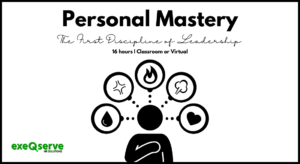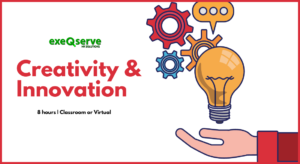In my more than two decades as an organizational and talent development consultant, I’ve seen many teams operate under the notion that teamwork is the key to success. While elements like trust, open communication, commitment to goals, individual accountability, and focus on results are crucial, they don’t always guarantee triumph. Let’s delve into why this is the case and how we can build better teams by rethinking our approach.
The Limitations of Teamwork

Teamwork, though essential, is not a magic solution. Michael Jordan famously said, “There is no ‘I’ in team but there is in win.” This highlights that individual excellence is as important as collective effort. A team’s success hinges on multiple factors, among them:
Skills of Team Members: It’s not just about having people who can work well together; they must individually possess the necessary skills to contribute effectively.
- Value of Work: How team members perceive their work impacts their engagement and productivity. It’s crucial they find meaning and importance in what they do. Look for people who take pride in what they do and admire people who do well in their field. Some people can be smart but dispassionate. Smarts alone won’t work if team members are just doing their work for the heck of it.
- Mindset for Success: A team member’s personal and professional mindset plays a significant role in how they approach challenges and opportunities. While we often hear “hire for attitude, train for skills.” We don’t often know which attitude to look for. I would recommend the attitude towards learning, otherwise known as grit or growth mindset.
The Solution: Strategic Team Member-Picking
The first step in building a successful team is choosing the right members. This process should focus not just on teamwork capability but also on individual competence and a relentless pursuit of excellence. I’ve recently watched that Movie, “Nyad” on Netflix. I am particularly inspired by how Jodie Foster’s Character, Bonnie Stoll chose the right kind of people to help Annette Bening’s Character, real life super swimmer Diana Nyad successfully cross the sea from Cuba to Florida. Now, that’s what I am talking about!
Integrating Personalities and Mindsets

Personality plays a vital role in team dynamics. Some, regardless of their skill level, might bring toxicity into the team. The Harbinger Institute’s concept of Inward and Outward mindsets is pertinent here. Inward-oriented individuals often disrupt team harmony, focusing solely on personal agendas. In contrast, outward-oriented team members are more collaborative and considerate of the team’s needs. If the inward-oriented team members are unable to change their mindset about work and teamwork, they will frustrate the team.
Selecting Team Members
 When forming a team, consider these factors:
When forming a team, consider these factors:
- Skill Level: Ensure each member brings a unique, necessary skill to the table.
- Work Ethic and Passion: Look for individuals who are not only capable but also passionate about their work. Choose people who have been pursuing a high standard of doing work
- Mindset: Choose members with an outward mindset, who can align personal goals with team objectives.
Building Beyond Teamwork
Once the team is formed, the focus should shift to nurturing these aspects:
- Continuous Skill Development: Encourage and facilitate ongoing learning and skill enhancement.
- Fostering a Positive Mindset: Regular team-building activities and open discussions can help maintain a healthy team mindset.
- Recognizing Individual Contributions: While teamwork is essential, acknowledging individual efforts motivates team members and drives performance.
Teamwork is the starting point, not the finish line. By strategically picking team members who not only work well together but also excel individually, and by fostering a mindset oriented towards collective success, we can build teams that are not just cooperative, but truly effective. Remember, in the puzzle of success, each piece – each team member – matters.
This approach to team building redefines the traditional focus on teamwork and emphasizes the importance of individual excellence within a collaborative framework. It’s a reminder that while we strive for unity, the unique strengths and mindsets of each member are what truly drive a team towards success.











